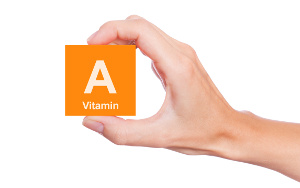More Vitamin C increases breast cancer patient survival
A meta-analysis conducted by researchers from the Karolinska Institute in Sweden with data from 10 observational studies collectively involving more than 17,500 women with breast cancer shows that a high intake of vitamin C from supplements or from the diet improve women's chances of survival significantly.
For a long time we have been lacking a coherent conclusion on the value of taking extra vitamin C in breast cancer. Scientists believe that this is the first analysis of the relatively few published studies on the intake of vitamin C in the diet and from supplement which combines vitamin C with survival after a breast cancer diagnosis.
Reduced risk after supplementing with vitamin C
By looking at the results of a number of previously conducted studies conducted in the period 1993 - 2013 that both included data on breast cancer, mortality and on intake of vitamin C from the diet and supplements the researchers conclude that the relative risk of dying from all causes after supplementing with vitamin C is reduced by 19%. The risk of dying from breast cancer was reduced by 15% with vitamin C supplementation.
Reduced risk with vitamin C in the diet
The researchers also looked at the effect of an increased intake of vitamin C in the diet. For every 100 mg increase of vitamin C in the diet the risk of dying from all causes was reduced by 27% and the risk of dying from breast cancer was reduced by 22%. It seems like a better reduction than from supplements but also much more difficult to achieve in practice, since an increase of 100 mg of vitamin C from the diet corresponds to a doubling of the intake of vitamin C in a normal (Danish) diet. In other words: If you eat two oranges a day, in the future you should eat four.
Mechanisms of action
There are several mechanisms by which the intake of vitamin C is believed to influence mortality among women with breast cancer. Vitamin C has antioxidant effects which causes it to neutralize free radicals that can influence the development of cancer. At higher doses vitamin C may also act as a pro-oxidant. In vitro studies have shown that high doses of vitamin C is toxic to cancer cells but not to normal cells.
Vitamin C and chemotherapy
The researchers mention that there has been examples of vitamin C taken in conjunction with chemotherapy and radiotherapy that in some cases have hampered the treatment of cancer by protecting tumor cells.
Conversely, another new study published in the journal Science Translational Medicine specifically examining high-dose vitamin C given intravenously to patients receiving chemotherapy shows that high-dose vitamin C can both improve efficacy and reduce side effects of chemotherapy, just not in all patients and not with all forms of medicine.
Conclusion
From these two scientific studies we can conclude that vitamin C inhibits cancer. People in active treatment with anti-cancer drugs should consult their doctor before supplementing with high-dose Vitamin C.
Refs.Harris HR, et al. Vitamin C and survival among women with breast cancer: A Meta-analysis. European Journal of Cancer. 2014;50(7):1223-31.
McConnell MJ, et al. Ascorbate combination Therapy: New tool in the anticancer Toolbox. Sci Transl Med. 2014;6(222):222fs6.
- Created on .











 "After about one week of taking the Q10 supplement I could feel a huge difference," says 23-year old Alan Piccini, who has been suffering from extreme fatigue and muscle aches ever since he was a child.
"After about one week of taking the Q10 supplement I could feel a huge difference," says 23-year old Alan Piccini, who has been suffering from extreme fatigue and muscle aches ever since he was a child. “Taking capsules with co-enzyme Q10 has freed me of the severe side effects of my cholesterol lowering medicine,” Mrs Franken explains.
“Taking capsules with co-enzyme Q10 has freed me of the severe side effects of my cholesterol lowering medicine,” Mrs Franken explains.